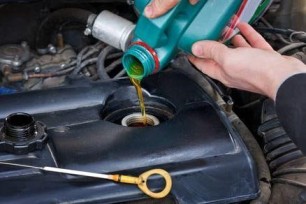Blog Details - Magma Insurance

Eight signs that indicate an oil change for your car 14th December 2021
Lubricating the car is essential to ensure your vehicle's overall fitness and functionality. The regular oil change is relatively an affordable maintenance task your vehicle requires, but the more important question is: How often should you change your engine oil? This entirely depends on the car’s usage. As a driver, you must look for typical signs your vehicle displays when it needs an oil change. You must detect the hints in advance to prevent them from developing severe damages.
This article will explain the top eight signs to heed that indicate an immediate oil change for your car.
• Check the oil change light. The engine sign will turn on if there isn’t enough oil in the engine. So, check the tank to discover what’s going on when the engine sign flashes.
• Engine knocking and noises. The oil acts as a friction barrier between engine components, preventing them from brushing and keeping the engine running silently. The engine noise will get intensified if the oil isn’t working perfectly.
• Change in the colour of the oil. The oil becomes darker and loaded with particles gathered from the engine as it gets utilized. Check your engine oil at least once every month by removing the dipstick from the oil tank. Make sure to wipe it clean before replacing it.
• Smoke from the exhaust. Your car’s exhaust always emits clear gas. But, if you observe smoke coming out from the exhaust, it’s time for a thorough engine inspection. It’s possible that you have a defective engine part or probably an oil leak.
• The odour of oil around the car. When you smell oil inside your vehicle, it’s usually a symptom of an oil leak. The car may overheat if you smell gasoline or vapours. In that case, you should schedule servicing right away after experiencing this.
• Excessive Travel. Consider an oil change quicker than the standard interval if you drive excessively. For example, you should change the oil every 10,000 km or half a year in new cars. For older cars, consider using high-mileage oil and change that every 5,000 Km.
• Fuel efficiency is poor. You would observe a decrease in fuel economy. However, this might indicate other issues with the fuel system, engine, or exhaust system. But an engine may fail to function if it isn’t getting adequately clean oil.
• The engine keeps stopping. If your car has been experiencing repeated engine difficulties, you should examine it. If your car stalls or feels like the engine seizes up at times, you might have low engine oil, poor oil, or an oil leak.
Only knowing how to drive a car isn’t enough; maintaining it is just as necessary. As with every other machine, your car won’t perform the best if not taken care of regularly. If you don’t change your car’s oil regularly, its performance can degrade quickly, resulting in catastrophic damage to your vehicle.
To avoid the consequences, you must watch out for indications that lead you to the warnings of an oil change. Like oil, your car insurance is another thing that needs continual renewal. Car insurances are financial saviours and are required when they are about to expire. Do not forget to check out your car insurance renewal dates and keep them updated to enjoy the uninterrupted benefits of the existing policy.
For your car insurance renewal, click HERE .
Disclaimer: The information provided above is for illustrative purposes only. To get more details, please refer to policy wordings and prospectus before purchasing a policy.
